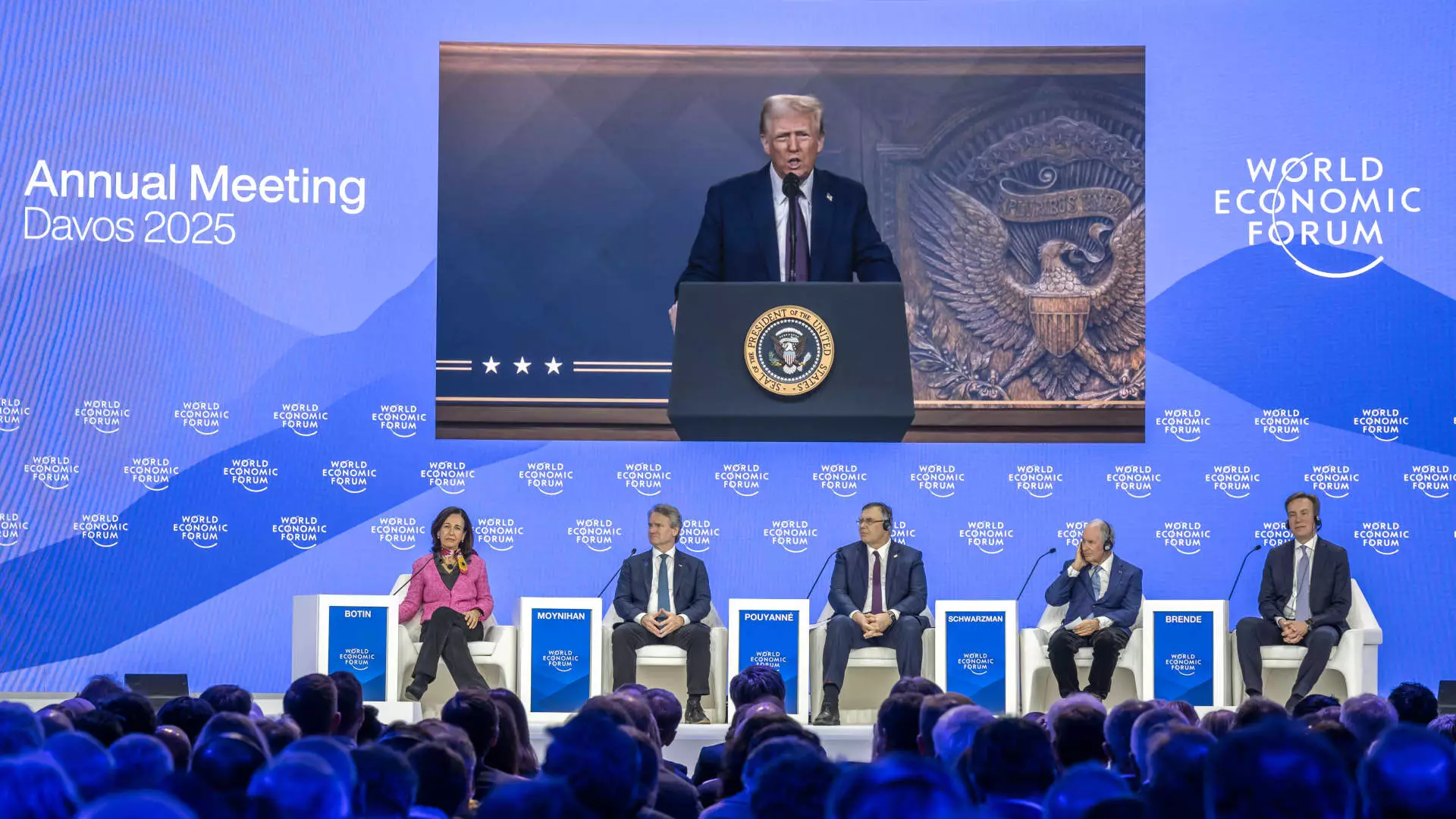In recent news, former President Donald Trump reignited his criticism of major financial institutions during a video call at the World Economic Forum in Davos, Switzerland. Trump targeted Bank of America and JPMorgan Chase, accusing their CEOs of intentionally sidelining conservative clients. This claim is not new, as Trump has utilized it as a talking point for his anticipated 2024 campaign, stirring a debate over the perceived politicization of banking services in America.
Trump’s remarks came during a question-and-answer session, where he explicitly addressed CEOs Brian Moynihan and Jamie Dimon. He asserted, “I hope you start opening your bank to conservatives…” implying that the banks have been discriminatory towards individuals with conservative viewpoints. This accusation touches on a broader narrative that has gained traction among some conservative circles, suggesting that financial institutions are exercising undue influence over political discourse by actively choosing who to serve based on their political beliefs.
However, both Moynihan and Dimon remained silent on the accusations during the session, sticking to their corporate rhetoric. Their lack of immediate rebuttal reflects a caution that major financial institutions often exercise when engaging with highly volatile political narratives.
Both Bank of America and JPMorgan Chase swiftly issued denials to Trump’s claims. Bank of America emphasized its willingness to serve over 70 million clients and insisted there is no political litmus test applied to their banking services. A spokesperson stated, “We have never and would never close an account for political reasons, full stop.” Similarly, JPMorgan reiterated its commitment to lawful practice while highlighting the complexity of the current regulatory environment.
Despite these assurances, Trump’s accusations resonate in a political landscape marked by fierce divisions. His continuous targeting of banks not only galvanizes his base but also raises questions about the extent to which financial institutions engage in risk management practices that might inadvertently harm marginalized political groups. The banks contend that their decisions are rooted in legal compliance and risk assessment rather than prejudiced filtering.
The accusations made against banks align with concerns that arose in the wake of the 2008 financial crisis, which saw an intensified scrutiny of high-risk industries. This scrutiny led to the de-banking of clients in various sectors deemed problematic. For instance, industries like payday lending, firearms, and even certain religious organizations have experienced abrupt account closures, often with little explanation.
Kansas Attorney General Kris Kobach’s letter to Bank of America highlights these issues when he claimed that the bank unfairly canceled accounts associated with religious organizations. The bank’s response indicated that account closures were due to compliance with regulations rather than political or religious beliefs. Nonetheless, the allegations underscore a significant tension between regulatory requirements and the potential unintended side effects on various communities.
Interestingly, Trump’s comments seemed to have minimal negative impact on the stock prices of the institutions involved. Share prices for both Bank of America and JPMorgan Chase witnessed an upswing following Trump’s speech. This phenomenon suggests a complex relationship between political discourse and market reactions, where financial institutions are perceived as resilient against political pressures. Such resilience may reflect a broader view that the banking sector, particularly under a Trump administration, stood to benefit significantly from deregulatory measures.
Moreover, influential voices within Trump’s circle, such as venture capitalist Marc Andreessen, have echoed similar concerns about banking discrimination. By asserting that dozens of startup founders have faced de-banking, these individuals reinforce Trump’s narrative.
The tension between banks and political figures raises critical questions about the future of banking services amid increasing politicization. As the banking sector navigates a landscape shaped by both regulatory concerns and political narratives, they must find a balance that reassures clients while adhering to the complexities of legal compliance. With the 2024 election looming, it’s likely that the dialogue surrounding financial discrimination will continue to evolve.
As more stakeholders enter the conversation, it is essential for banks to ensure transparency in their practices to avoid becoming embroiled in the contentious political debates of the time. The future may see financial institutions adapting their policies to not only comply with regulations but also to foster an inclusive environment that can withstand political scrutiny. Thus, the dialogue initiated by Trump serves as a crucial moment in understanding the intersection between finance and politics in America.

